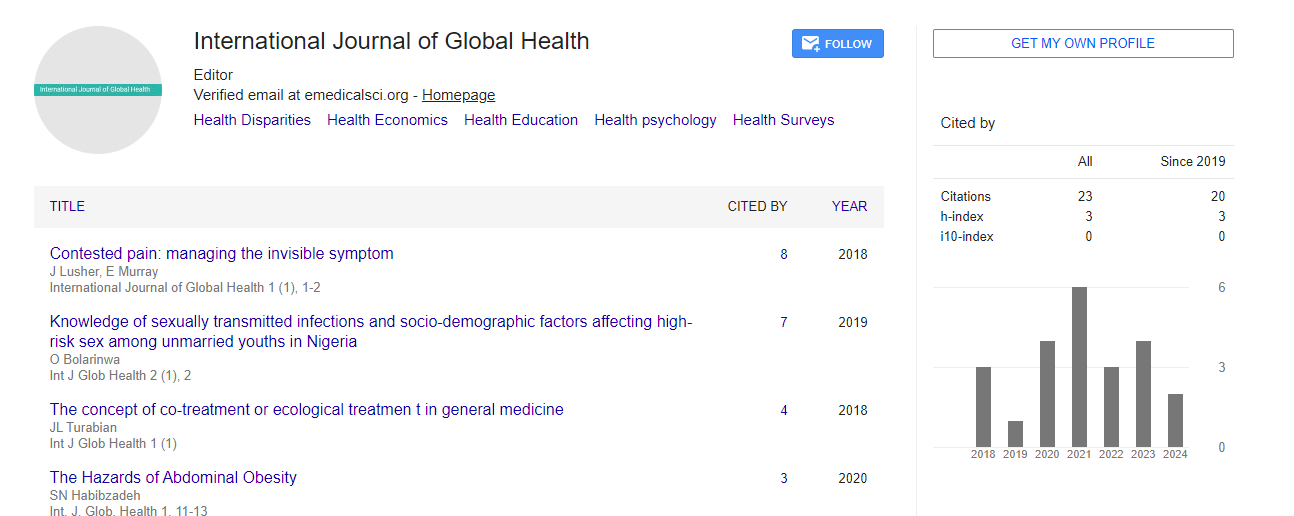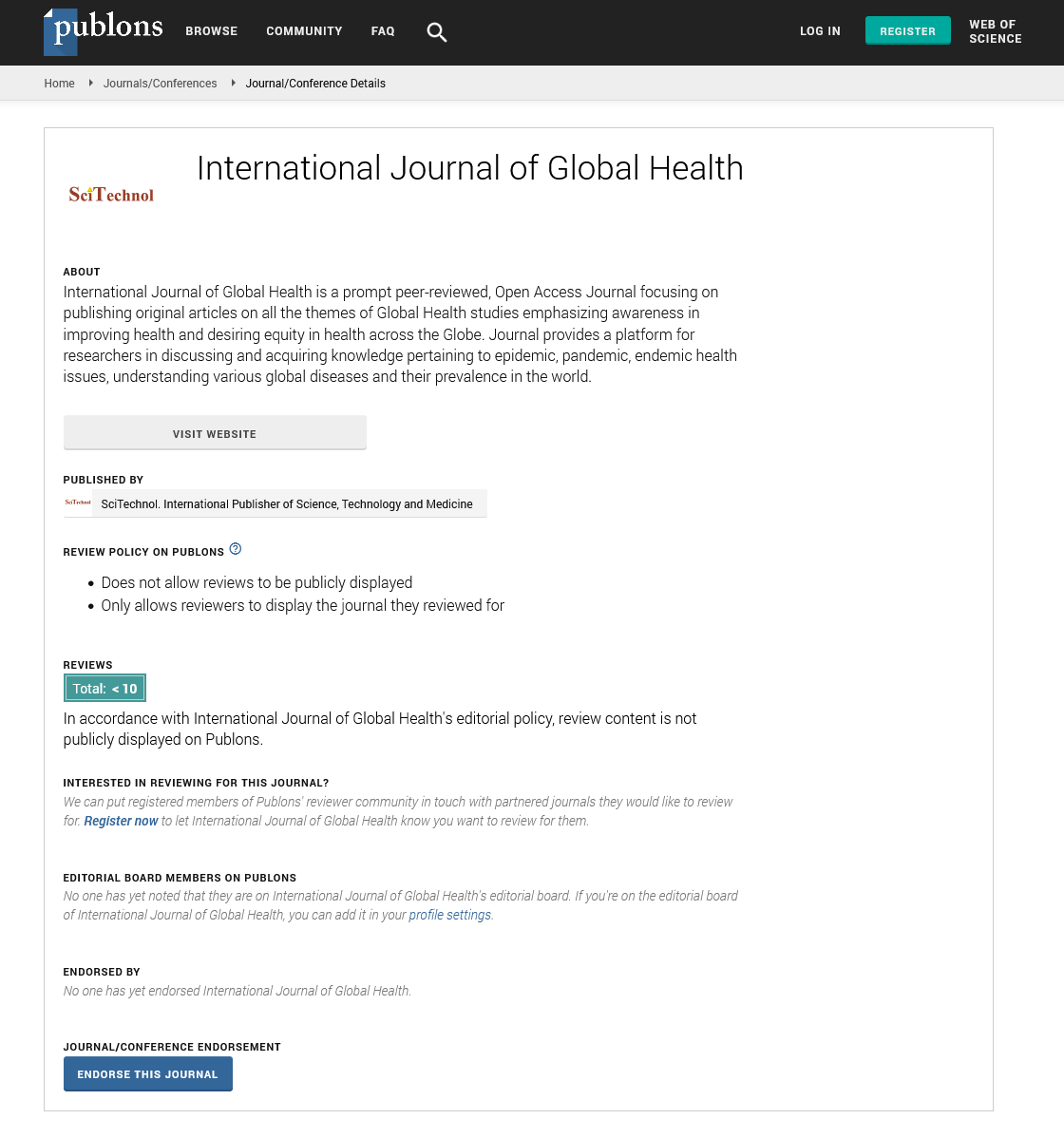Perspective, Int J Glob Health Vol: 6 Issue: 4
Global Mental Health: Striving for Equity and Accessibility
Mengmeng Shen*
1Department of Disease Prevention and Control, Globe University, Metropolis, Australia
*Corresponding Author: Mengmeng Shen,
Department of Disease Prevention
and Control, Globe University, Metropolis, Australia
E-mail: Shenmeng2_meng@globu.edu.au
Received date: 27 November, 2023, Manuscript No. IJGH-24-125952;
Editor assigned date: 29 November, 2023, PreQC No. IJGH-24-125952 (PQ);
Reviewed date: 14 December, 2023, QC No. IJGH-24-125952;
Revised date: 21 December, 2023, Manuscript No. IJGH-24-125952 (R);
Published date: 28 December, 2023, DOI: 10.4172/Ijgh.1000196
Citation: Shen M (2023) Global Mental Health: Striving for Equity and Accessibility. Int J Glob Health 6:4.
Description
Mental health is a fundamental aspect of overall well-being, yet disparities in access to mental health services persist globally. Achieving equity and accessibility in global mental health is a multifaceted challenge that necessitates comprehensive strategies addressing cultural, economic, and systemic factors. Mental health disorders affect individuals across diverse cultures, socioeconomic backgrounds, and geographic locations. The World Health Organization estimates that one in four people will experience a mental health condition at some point in their lives. However, the burden of mental health disorders is not evenly distributed, with disparities existing in both the prevalence of conditions and access to mental health support. Numerous barriers impede access to mental health care on a global scale. Stigma surrounding mental health, inadequate awareness, and a shortage of mental health professionals contribute to the underutilization of available services. Economic constraints, particularly in low-resource settings, further limit accessibility. Culturally specific beliefs and practices around mental health also influence help-seeking behaviors.
Integrating mental health services into primary care settings is a key strategy for enhancing accessibility. By destigmatizing mental health and embedding it within routine healthcare, individuals are more likely to seek help early on. This approach also addresses the shortage of specialized mental health professionals by leveraging existing primary care infrastructure. The use of telehealth and digital interventions has emerged as a promising avenue to improve accessibility to mental health services, particularly in regions with limited resources. Teletherapy, mental health apps, and online resources facilitate remote access to support, reducing geographical barriers and increasing the reach of mental health interventions.
Given the significant impact of work-related stress on mental health, workplace mental health programs are crucial for promoting equity. Employers can contribute to mental health accessibility by implementing supportive policies, offering mental health resources, and creating a stigma-free work environment. Such initiatives benefit not only individual employees but also contribute to a broader culture of mental well-being. Addressing the global shortage of mental health professionals requires comprehensive training and capacity-building programs. Investing in the education of mental health workers, particularly in underserved regions, is essential. This includes training community health workers, providing specialized training for primary care providers, and supporting ongoing professional development.
Advocacy for mental health at the policy level is crucial for achieving equity. Governments and international organizations must prioritize mental health in policy agendas, allocate sufficient resources, and work towards enforcing mental health as a human right. Legislative efforts should aim to eliminate discriminatory practices and promote mental health parity. Advancing mental health equity requires ongoing research to understand the unique challenges faced by diverse populations. Global collaboration and knowledge-sharing initiatives enable the development of effective interventions that consider cultural nuances and local contexts. Collaborative efforts enhance the collective understanding of mental health and inform evidence-based strategies.
Conclusion
In conclusion, striving for equity and accessibility in global mental health demands a comprehensive and inclusive approach. By addressing social determinants, integrating mental health into primary care, leveraging technology, and advocating for policy changes, the international community can work towards a future where mental health services are accessible to all. Fostering equity in mental health not only improves individual outcomes but contributes to a more just and compassionate global society.
 Spanish
Spanish  Chinese
Chinese  Russian
Russian  German
German  French
French  Japanese
Japanese  Portuguese
Portuguese  Hindi
Hindi 
